Abstract
Three experiments analyzed the effectiveness of a textbook incorporating “concept programming” in producing concept formation in university students. The concept programming portion of each lesson requires students to determine which concept is illustrated by each of 20 short fictional stories about everyday behavioral situations. The stories are selected to illustrate and contrast the concepts of that lesson. Student responses are heavily prompted during the initial stories of each lesson. The first experiment demonstrated that students generalize to entirely novel examples from the examples in the textbook. The second experiment demonstrated that the concept programming portion of the textbook is a critical component in producing generalization. The third experiment demonstrated that the amount of concept formation produced by the concept programmed textbook is greater than that produced by a widely used standard textbook.
Keywords: academic behavior, college instruction, concept programming, teaching concepts, individualized instruction, multiple baseline, language, university students
Full text
PDF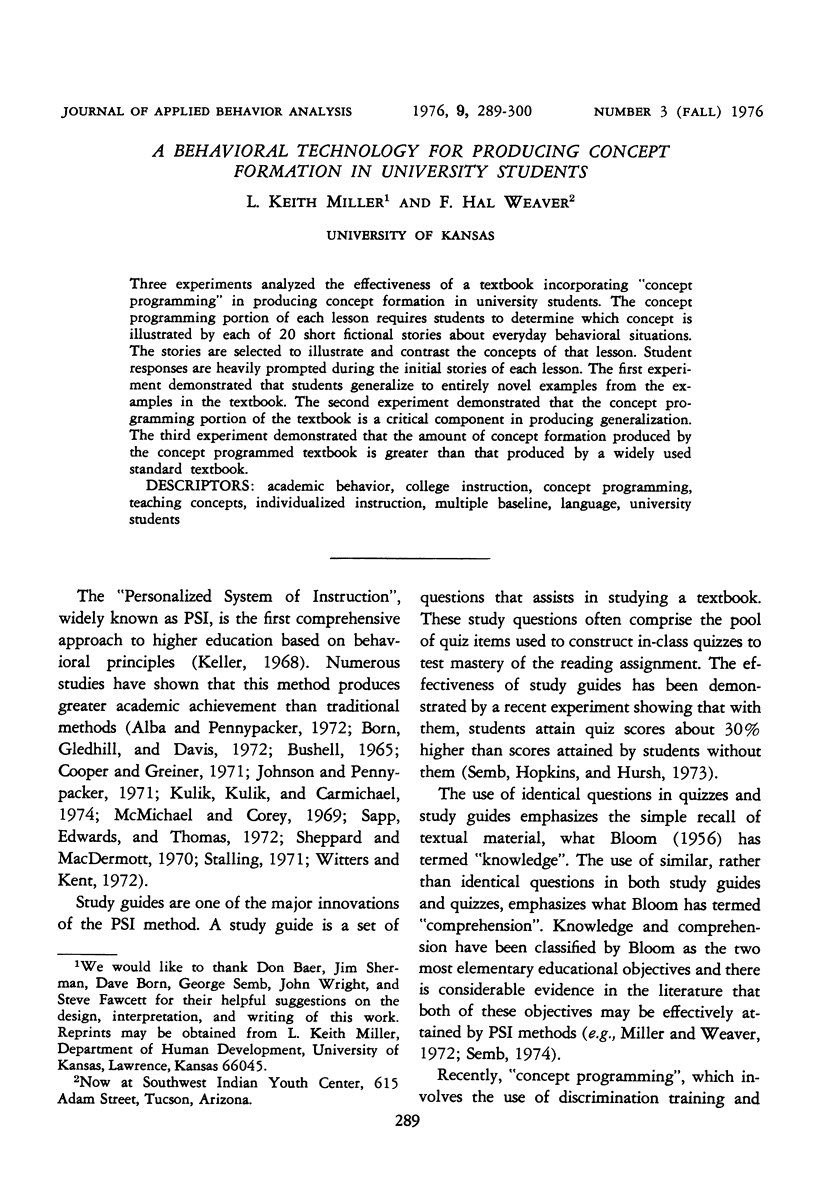
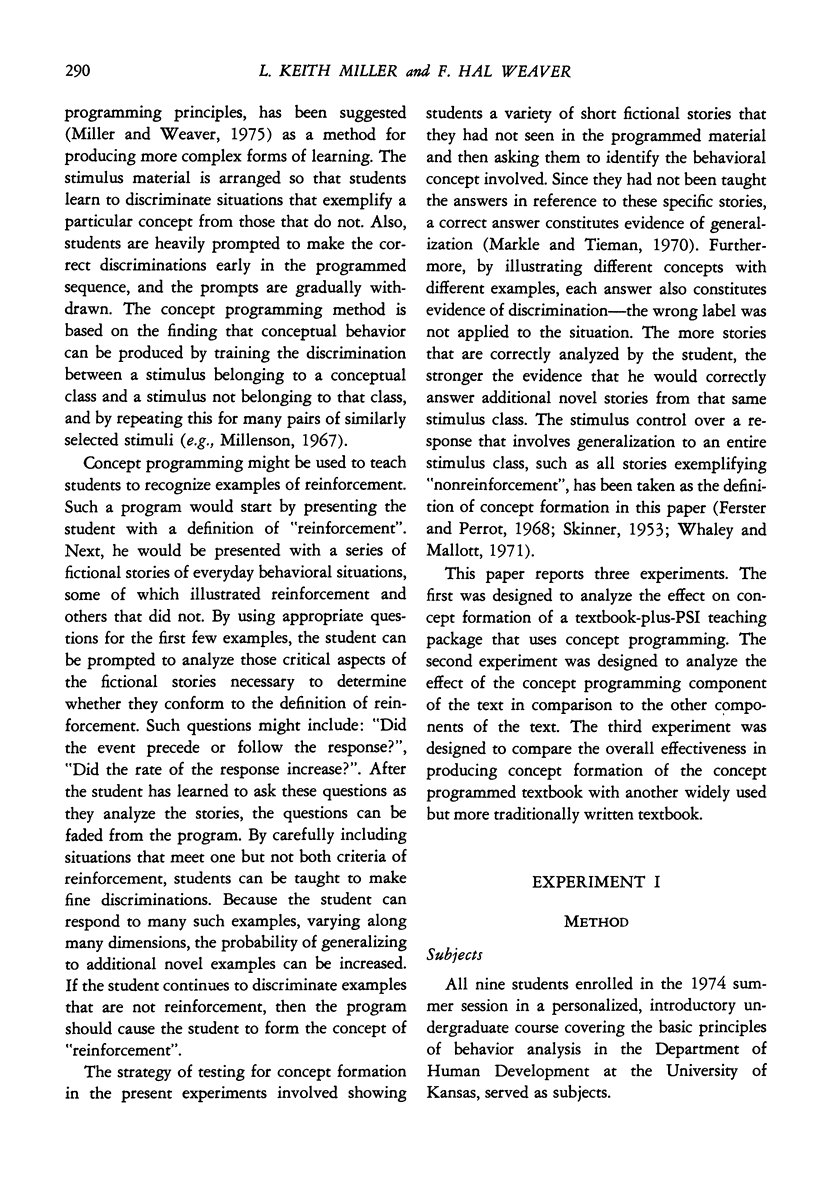
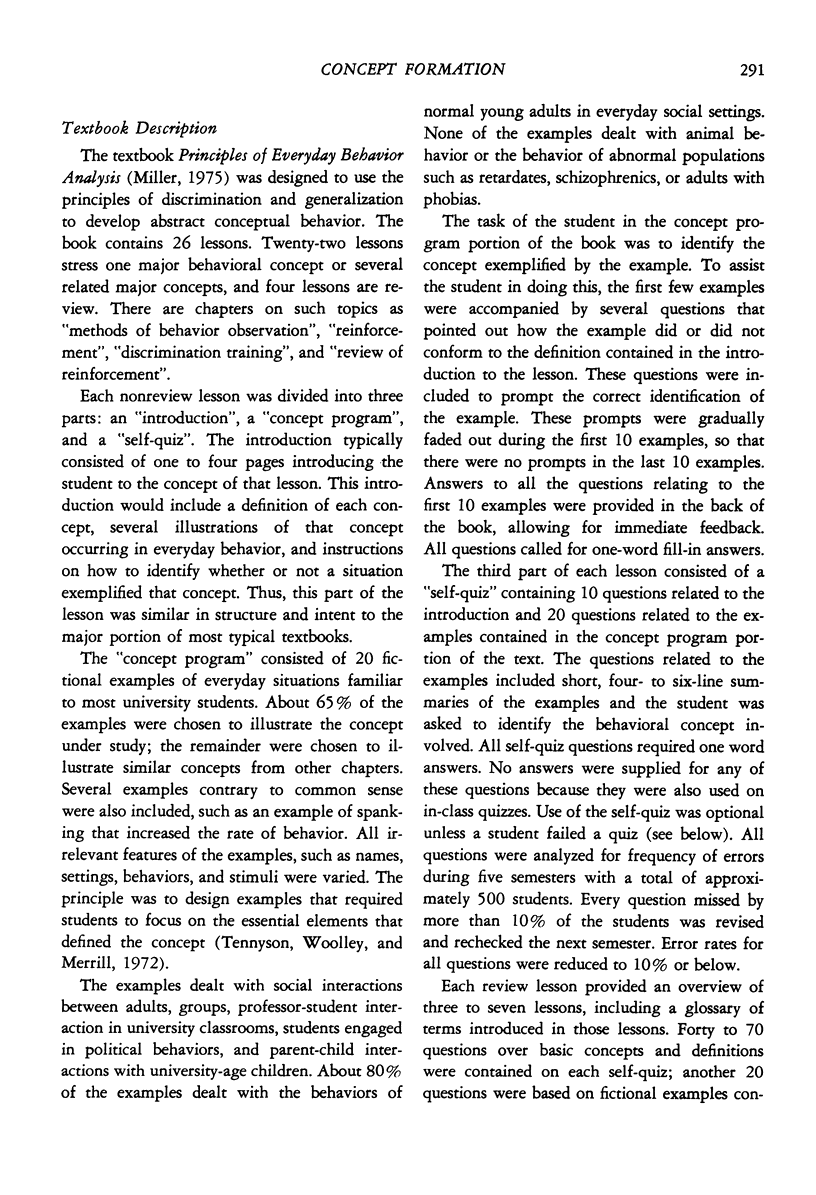
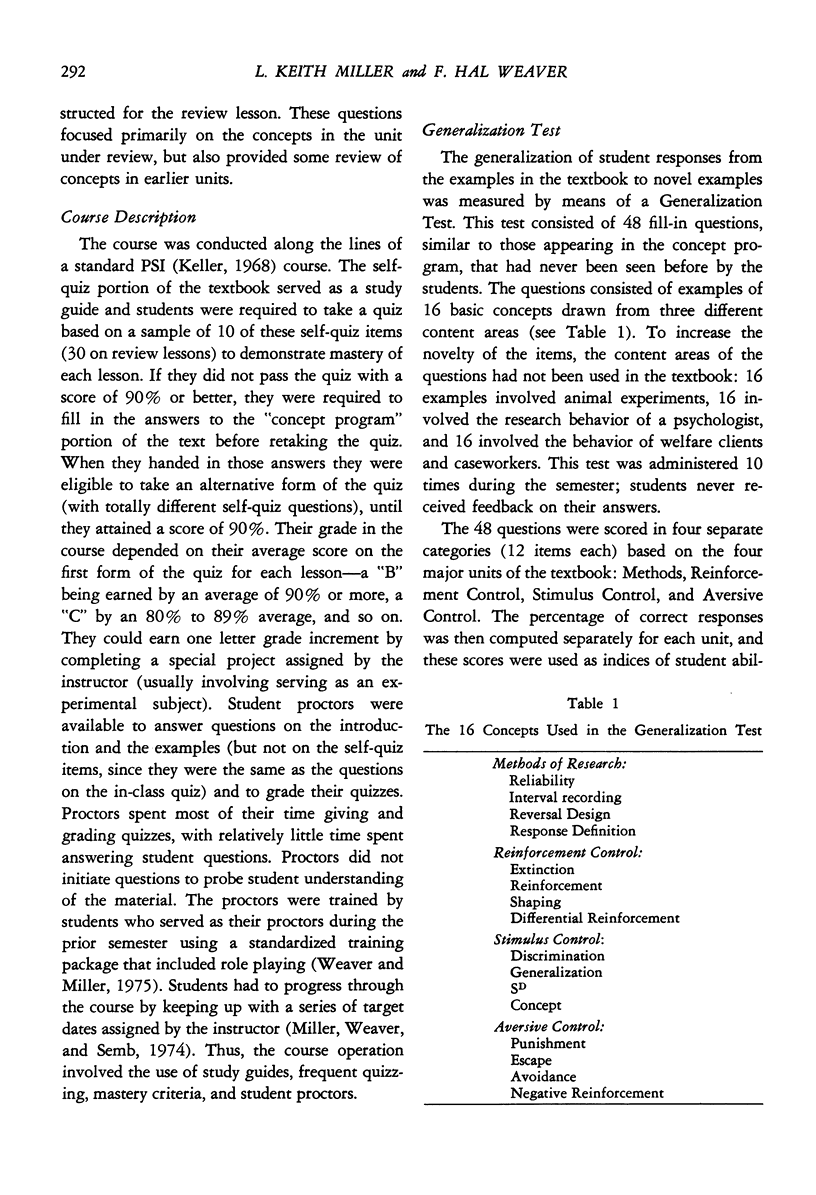
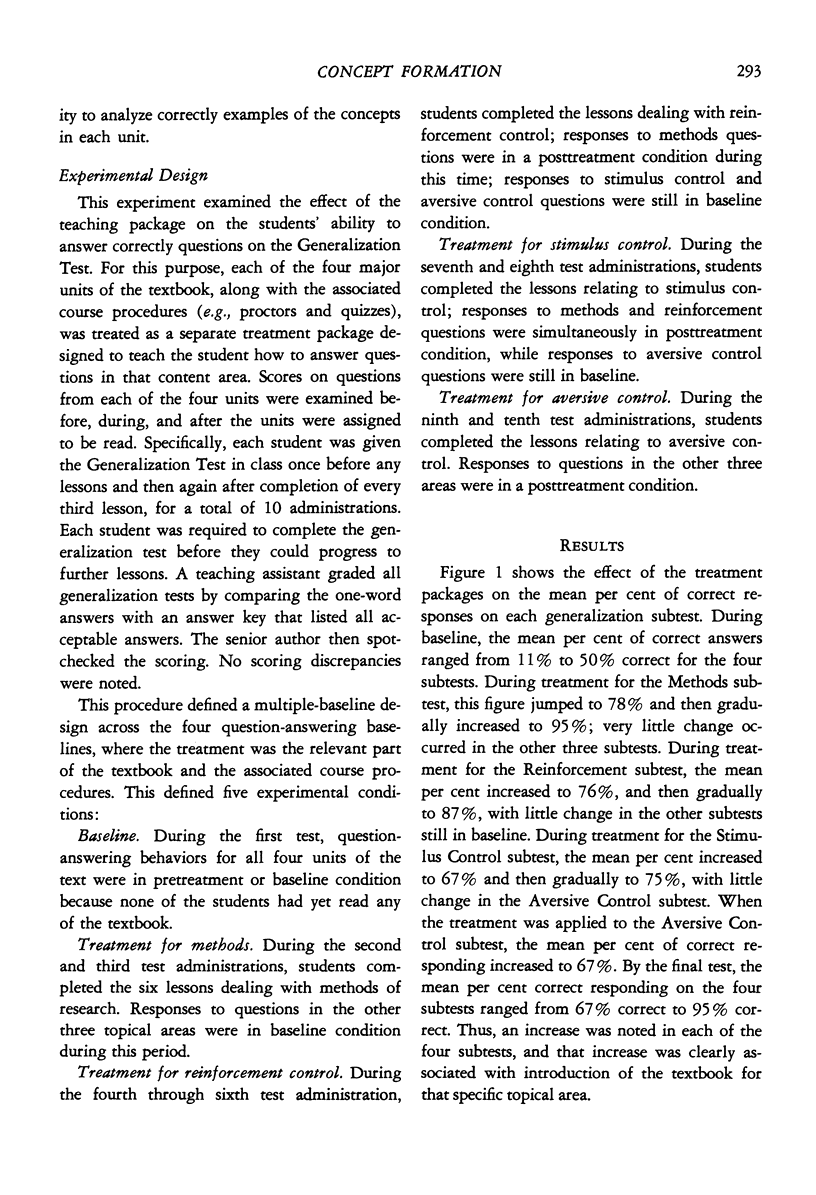
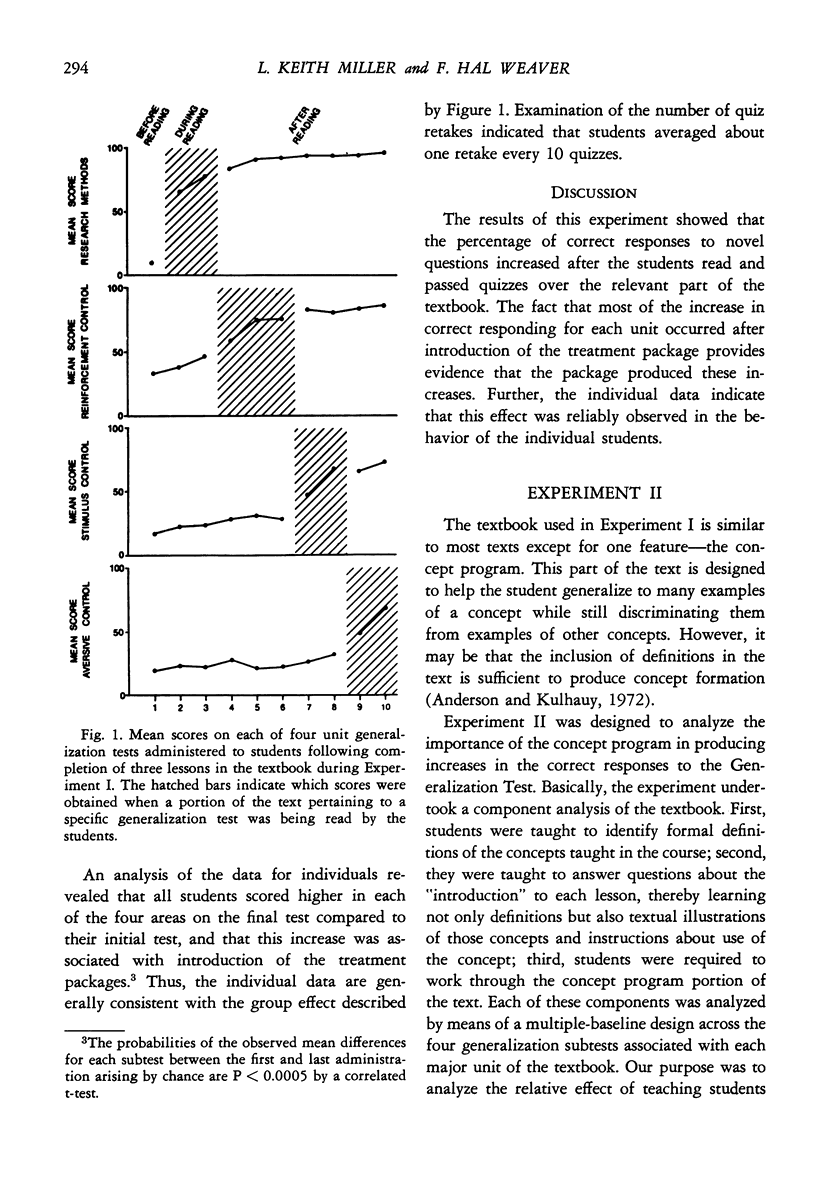
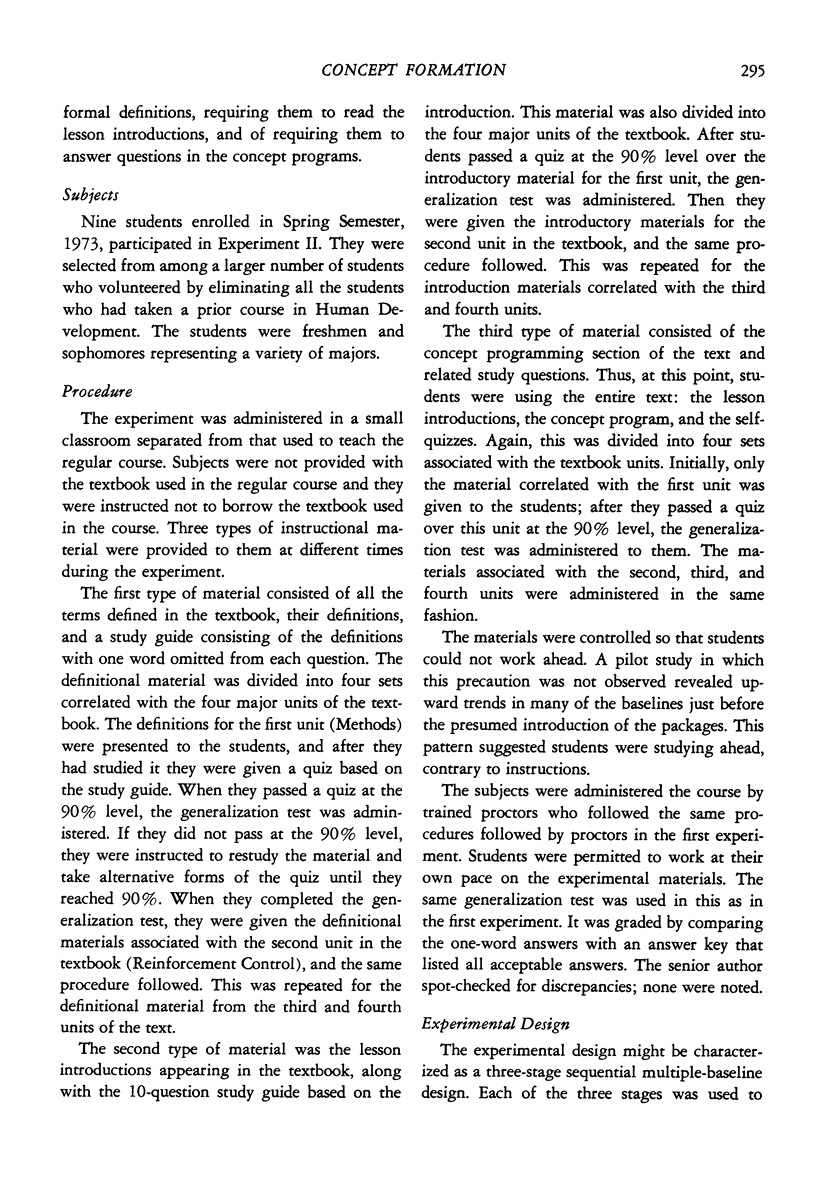
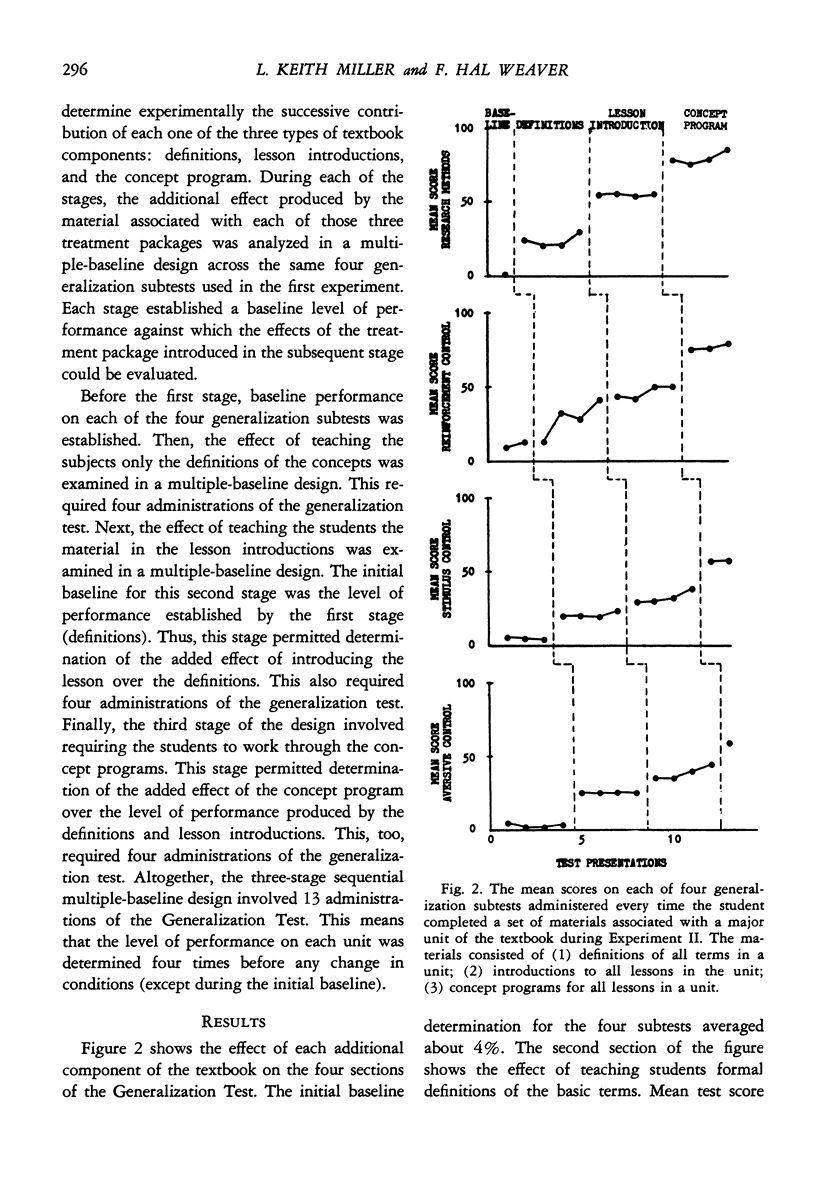
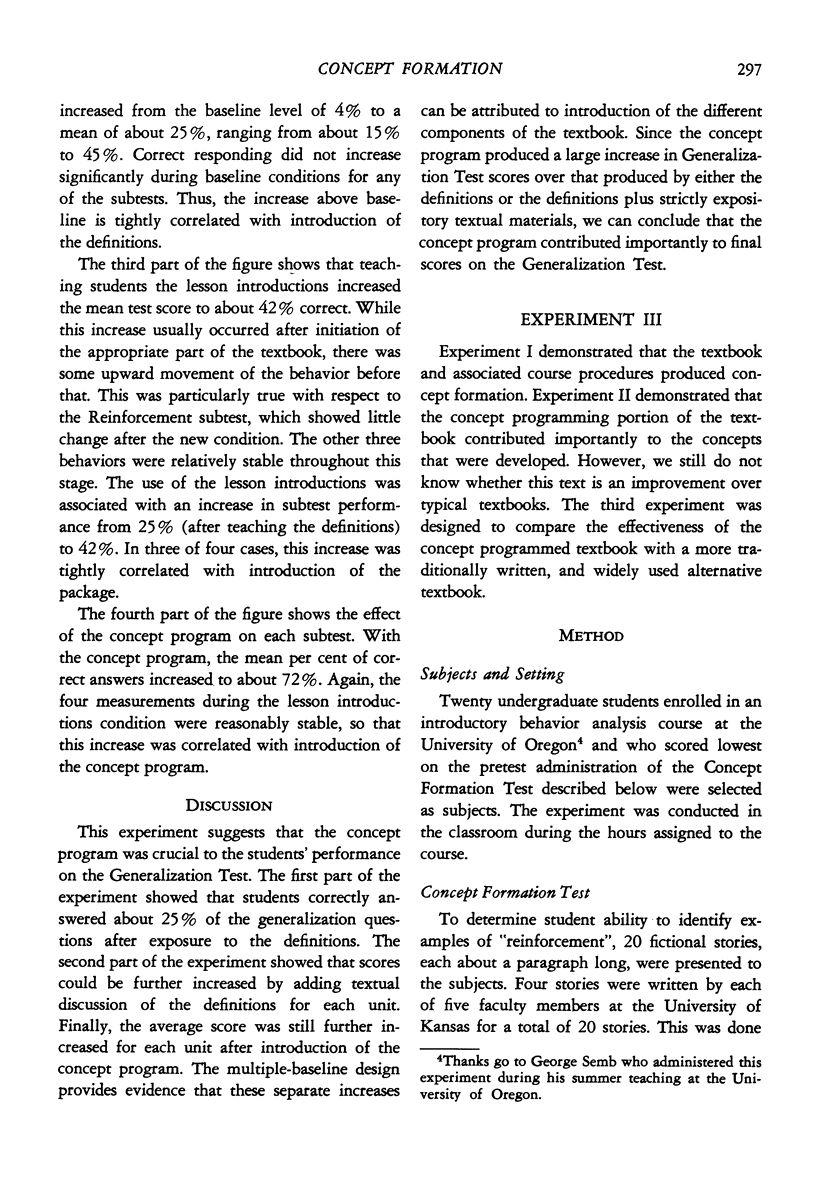
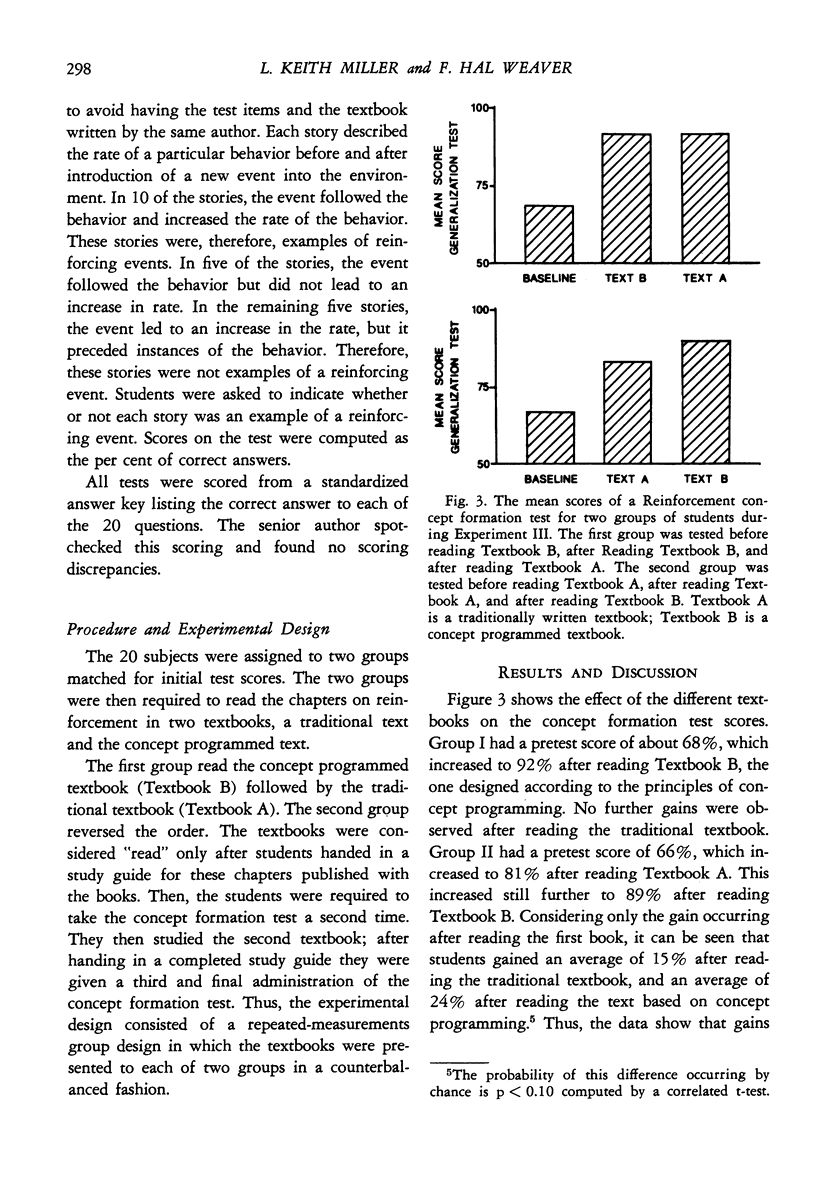
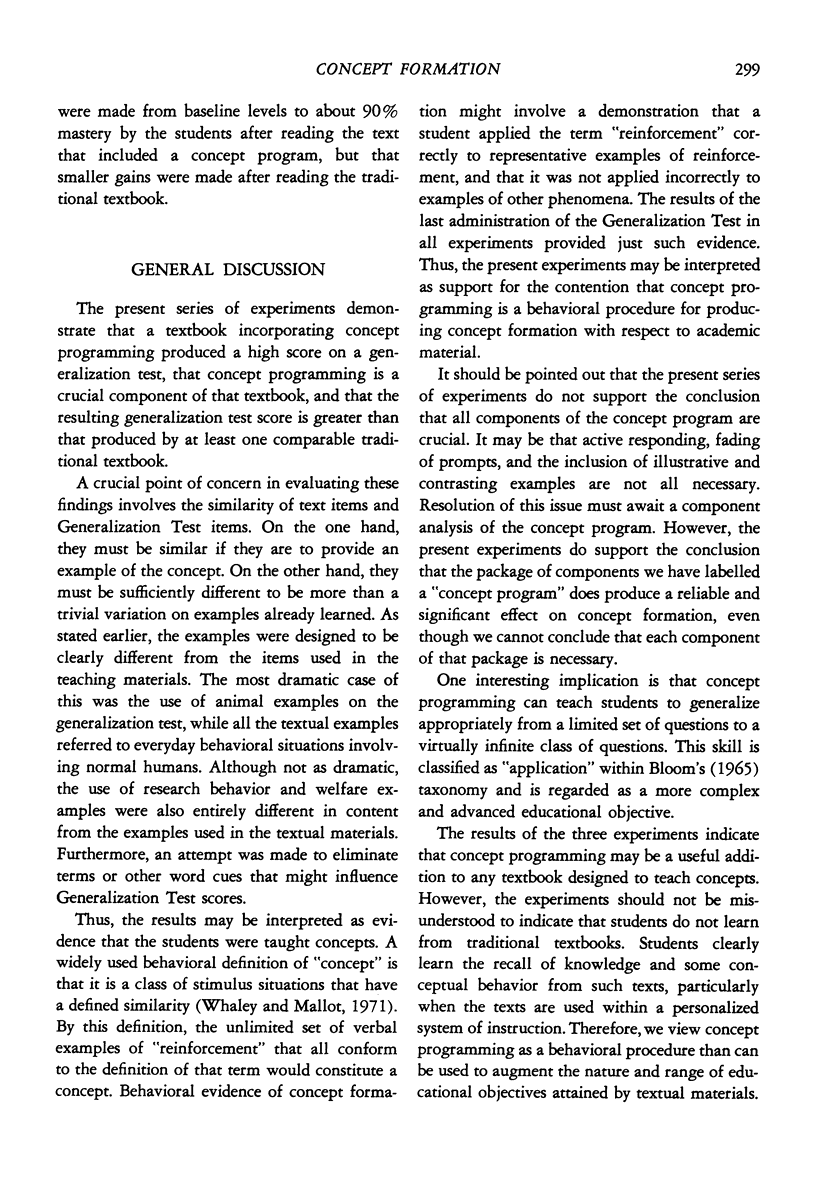
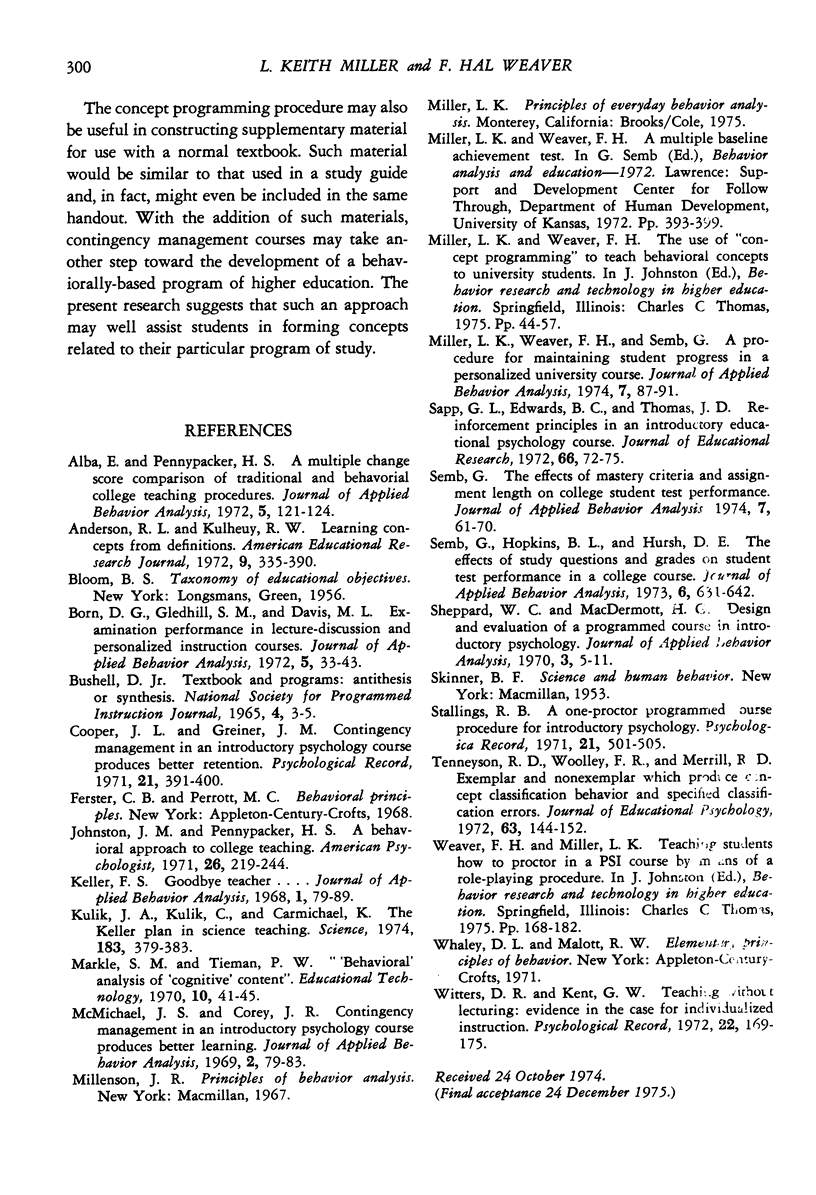
Selected References
These references are in PubMed. This may not be the complete list of references from this article.
- Alba E., Pennypacker H. S. A multiple change score comparison of traditional and behavioral college teaching procedures. J Appl Behav Anal. 1972 Summer;5(2):121–124. doi: 10.1901/jaba.1972.5-121. [DOI] [PMC free article] [PubMed] [Google Scholar]
- Born D. G., Gledhill S. M., Davis M. L. Examination performance in lecture-discussion and personalized instruction courses. J Appl Behav Anal. 1972 Spring;5(1):33–43. doi: 10.1901/jaba.1972.5-33. [DOI] [PMC free article] [PubMed] [Google Scholar]
- Keller F. S. "Good-bye, teacher...". J Appl Behav Anal. 1968 Spring;1(1):79–89. doi: 10.1901/jaba.1968.1-79. [DOI] [PMC free article] [PubMed] [Google Scholar]
- Kulik J. A., Carmichael K., Kulik C. L. The Keller Plan in Science Teaching: An individually paced, student-tutored, and mastery-oriented instructional method is evaluated. Science. 1974 Feb 1;183(4123):379–383. doi: 10.1126/science.183.4123.379. [DOI] [PubMed] [Google Scholar]
- McMichael J. S., Corey J. R. Contingency management in an introductory psychology course produces better learning. J Appl Behav Anal. 1969 Summer;2(2):79–83. doi: 10.1901/jaba.1969.2-79. [DOI] [PMC free article] [PubMed] [Google Scholar]
- Miller L. K., Weaver F. H., Semb G. A procedure for maintaining student progress in a personalized university course. J Appl Behav Anal. 1974 Spring;7(1):87–91. doi: 10.1901/jaba.1974.7-87. [DOI] [PMC free article] [PubMed] [Google Scholar]
- Semb G., Hopkins B. L., Hursh D. E. The effects of study questions and grades on student test performance in a college course. J Appl Behav Anal. 1973 Winter;6(4):631–642. doi: 10.1901/jaba.1973.6-631. [DOI] [PMC free article] [PubMed] [Google Scholar]
- Sheppard W. C., Macdermot H. G. Design and evaluation of a programmed course in introductory psychology. J Appl Behav Anal. 1970 Spring;3(1):5–11. doi: 10.1901/jaba.1970.3-5. [DOI] [PMC free article] [PubMed] [Google Scholar]


